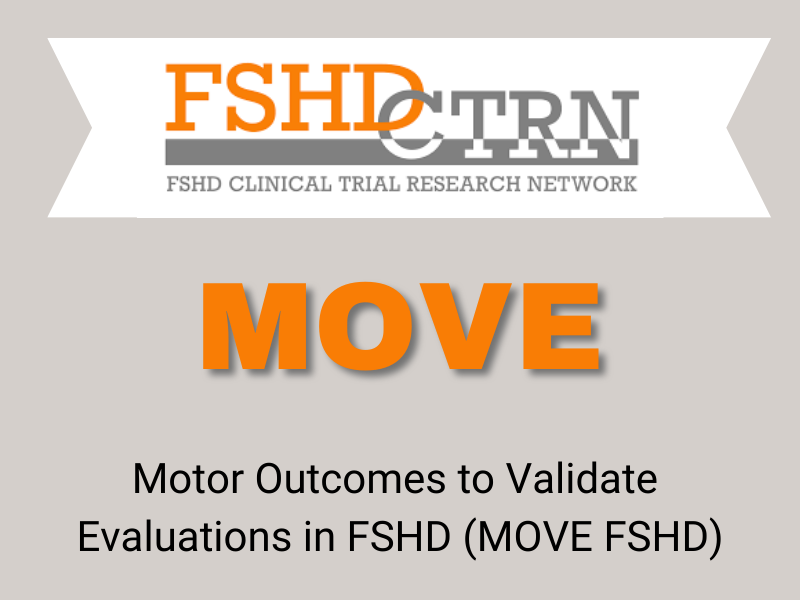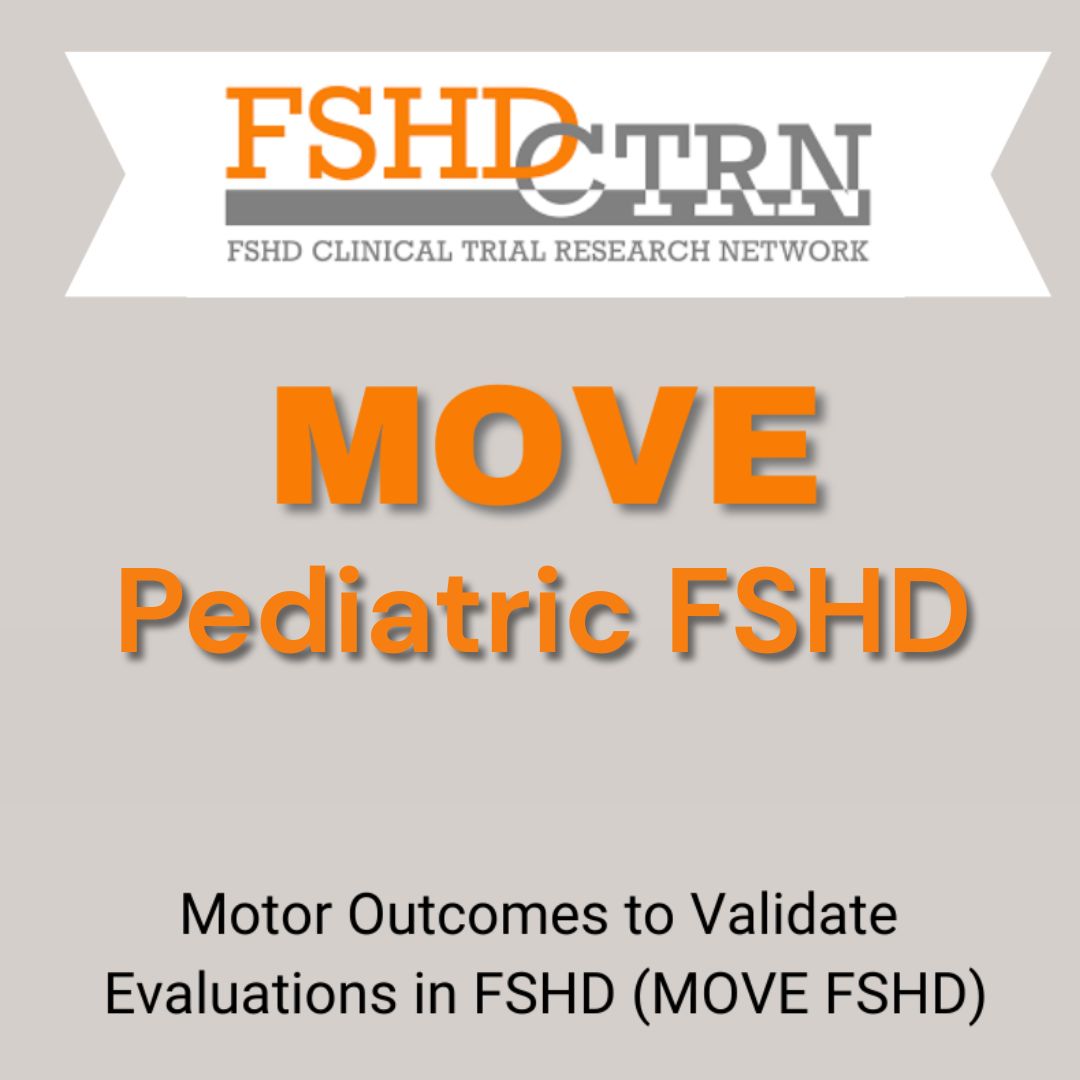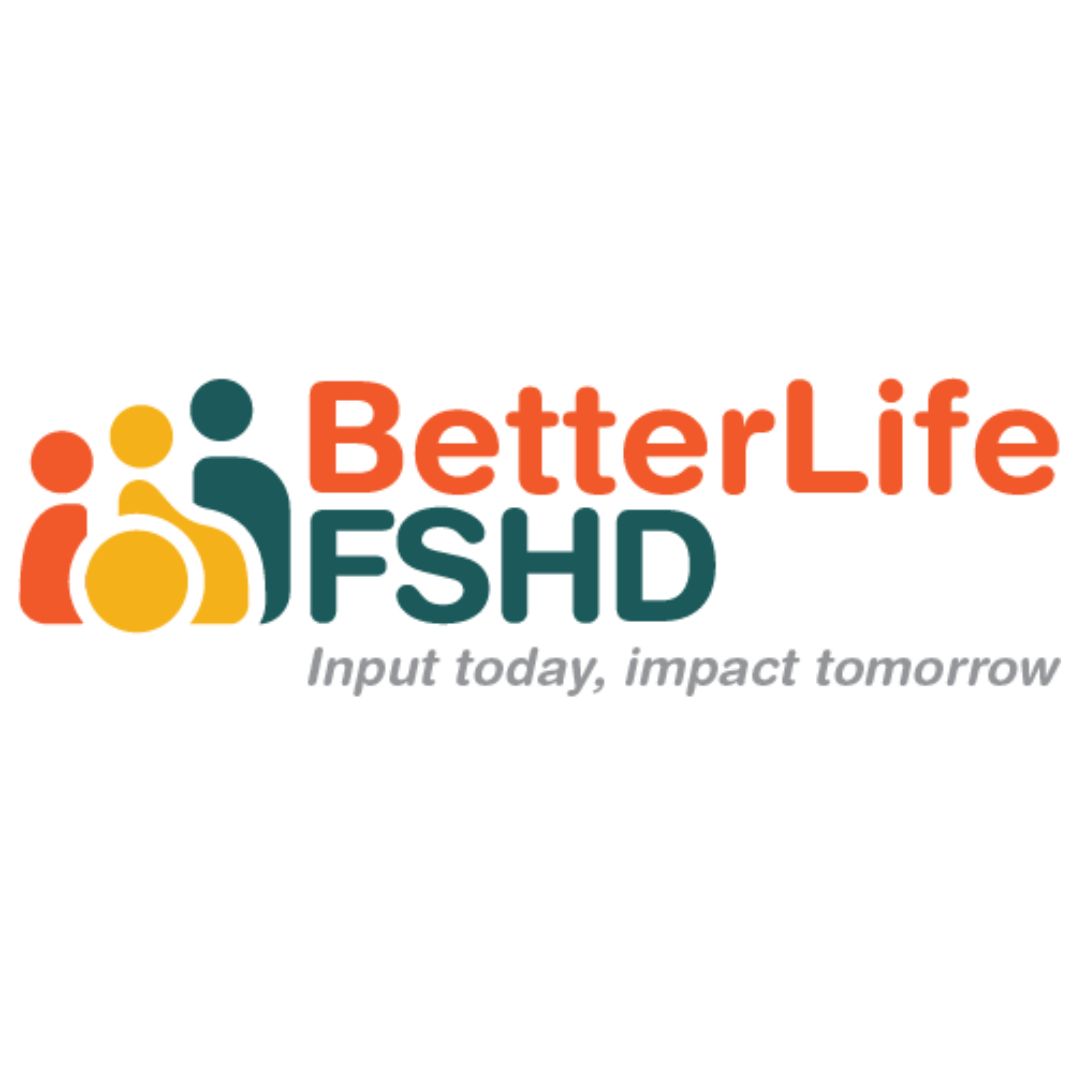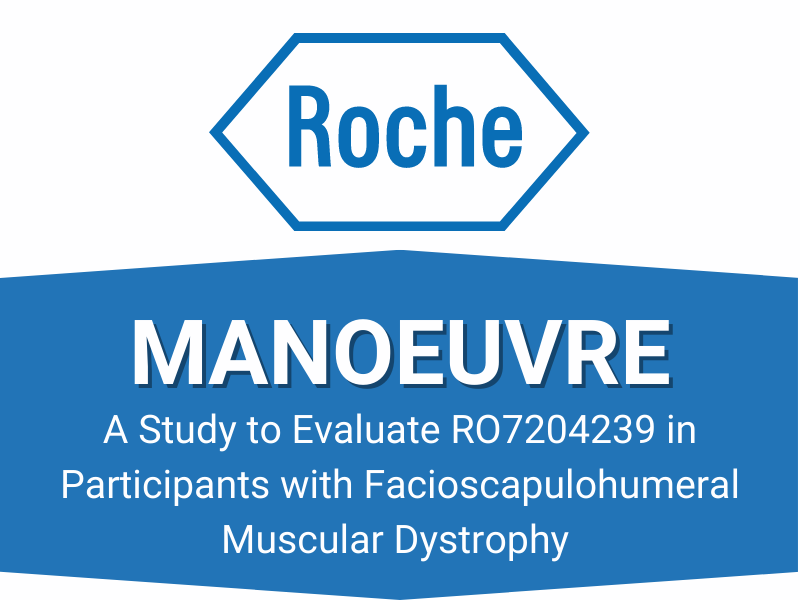Current Trials and Studies
Participating in a Clinical Trial or Study
Clinical studies are research studies that involve people. Clinical trials are a type of clinical study that tests if a treatment works and is safe. You can find free information on clinical trials and some other clinical studies at ClinicalTrials.gov. Below, we share information about important FSHD trials and studies, including some not on ClinicalTrials.gov.
If you’re interested in a study, contact the center or coordinator listed to learn more.
Learn more about how clinical trials work and what to expect if you decide to take part.
Learn How Trials WorkKey Recruiting Studies
Enrolled, Ongoing Studies
Additional Studies
National Registry for Myotonic Dystrophy and Facioscapulohumeral Muscular
This registry helps researchers find new treatments for FSHD and myotonic dystrophy. It is open to U.S. patients and their family members, even those without symptoms. Funded by the NIH, the registry connects researchers with volunteers for studies. When a new study becomes available, eligible members are notified. To join, participants fill out a questionnaire.
Learn moreREINFORCE: Randomized, Double Blind, Placebo-controlled Pilot Study to Evaluate the Efficacy and Safety of Satralizumab in FSHD1
This study tests to see if the drug satralizumab can help people with FSHD1. Research shows that people with FSHD have high levels of IL-6, a molecule linked to inflammation. Satralizumab, a drug originally used for an autoimmune disease, blocks IL-6 and may help reduce muscle damage. This trial takes place in Nice, France, and Ottawa, Canada.
Learn MoreFSHD Biomarker study
Researchers at the University of Massachusetts Wellstone Center are studying why FSHD symptoms are different for each person, even in the same family. The study looks at genes and biological markers to understand muscle weakness, predict how the disease might progress, and improve future treatments. People with FSHD, their family members, and healthy volunteers can join by giving a blood, saliva, muscle, or skin sample and filling out a short medical history form.
Learn MoreA Registered Cohort Study on Facioscapulohumeral Muscular Dystrophy
This is a nationwide study that collects information on people of all ages with genetically confirmed FSHD1 in China. It includes families with at least one affected member and gathers both past and ongoing health data over time. The goal is to help doctors and healthcare providers better understand FSHD1, including how common it is, how it progresses, and its long-term effects. This information can support better medical care and financial planning for people living with FSHD1.
Learn MoreMy FSHD: Improve FSHD diagnostics and better understand genetics and epigenetics of FSHD
This study is testing a new way to diagnose FSHD. The technique is still experimental and not yet approved by health authorities. Researchers hope to confirm the new test and better understand the genetics of FSHD. Participants will provide a saliva sample, which will be used to study DNA for genetic changes. The study is currently only accepting participants in China, Taiwan, and parts of northeast India.
Learn MoreMake a Tissue Donation
Donating tissue is a powerful way to help scientists find new treatments and, one day, a cure for FSHD. Tissue from patients is very important for research because it helps scientists understand how the disease affects the body. Donations can come from certain surgeries, like scapular fixation, or after death if your family gives permission. These donations help researchers make discoveries that could improve care for future generations.
The NICHD Brain and Tissue Bank at the University of Maryland collects and shares brain tissue from people with and without developmental disorders.
The Stanford Neuromuscular Biobank collects and shares a variety of biological samples related to neuromuscular disorders. Donations may include brain tissue, spinal cord, spinal fluid, heart, muscle, and other organs from surgery or, with family permission, after death.






